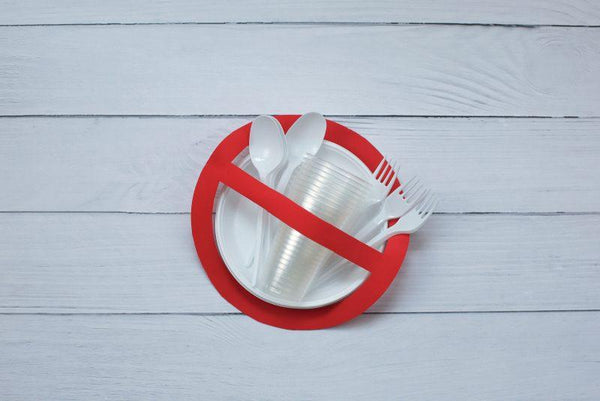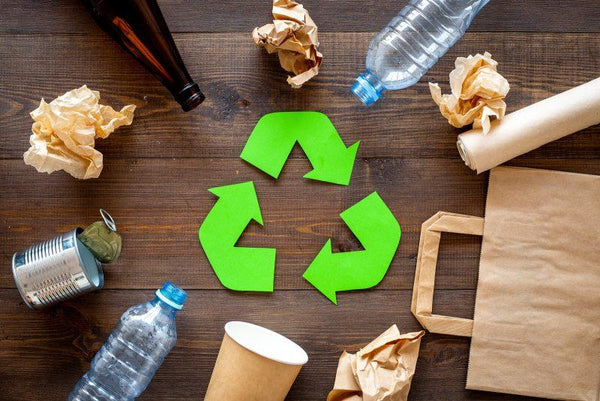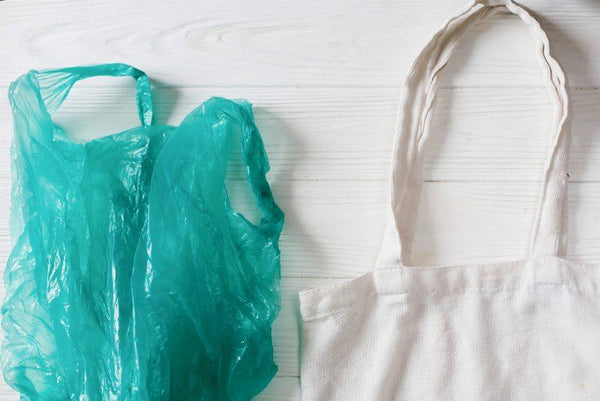
Plastic waste remains one of the largest global ecological issues, but earth-friendly entrepreneurs are increasing demand for reclaimed plastic to give it new life beyond the landfill.
The production of plastic requires complex methods and costly equipment. It is mind-boggling to think that so much time, energy, and money is spent on something that ends up doing more harm than good by polluting the ocean and filling up landfills.
Every year, 8 million tons of plastic waste finds its way to the ocean. That is the equivalent of dumping the contents of a garbage truck into the sea every minute of every day. This rate is set to double by 2030 if our habits do not change. Los Angeles alone contributes five tons of plastic fragments into the Pacific Ocean daily, equaling roughly 1,825 tons annually. These stats do not even include the tons of plastic waste taking up precious space in landfills.
So, why are plastics not more widely recycled? Like most things, it comes down to cost. Recycling machines are expensive, and plastic is a fickle material. Impure plastic can easily damage or slow down machinery, making increased maintenance or costly replacement necessary. The cost, however, is not just derived from the machines themselves. Recycled plastic also costs ten times more than virgin plastic because it is much more difficult to make. One piece of lesser quality in a batch of recycled plastic can render the entire cycle unusable, wasting money, time, and driving up the price of the material.
In turn, businesses and customers who choose to use or purchase goods made from recycled plastic spend a lot of money to do so. Regardless of the extra cost, recycled and reclaimed plastic is in high demand for companies and customers who care deeply about the environment. Organizations and companies like Precious Plastic, the Plastic Bank, VolkerWessels, and ByFusion are working actively to turn plastic waste into a commercially viable, reusable material.
Dave Hakkens, a pioneer in reclaimed plastics, created an open source suite of machines designed to turn plastic waste into a reusable resource. Precious Plastics allows anyone, anywhere in the world, to access, download, and build devices capable of converting plastic waste into literally anything. A person can become a self-sufficient entrepreneur of upcycled plastic goods, not unlike a carpenter or sculptor; the only difference is that instead of wood or clay, your medium of choice is… well… plastic.
What you create is limited only by your imagination and the supply of plastic garbage you find laying around. Even the machines — whose open-source designs are available for free on the Precious Plastics website — are customizable to your needs. By offering a solution to the problem of plastic waste, Hakkens has empowered anyone and everyone to assist in the recycling of plastic in a way that also benefits the recyclers financially.
The Plastic Bank is another organization treating plastic as a material rather than a waste product. The Plastic Bank brought its concept of “Social Plastic” to Port Au Prince, Haiti to assist struggling residents and improve infrastructure after recent hurricanes. 30 recycling markets set up around the city allow residents to collect and turn in plastic in exchange for credits which they can then claim for “anything from a sustainable stove to a solar-powered phone charger.” What’s interesting here is that this system changes the perception of plastic from trash into a monetary unit, using humanity’s natural inclination to increase its wealth to also increase the recycling effort. For this system to work in the long term, there must be demand for reclaimed plastic as a raw material — a trend that seems to be gaining momentum.
VolkerWessels and ByFusion are two companies looking to capitalize on recycled plastics, creating prototypes that could utilize this resource on an enormous scale.
VolkerWessels’ PlasticRoad would use reclaimed plastic as an alternative to asphalt to pave roads. Using plastic waste would minimize the carbon emissions traditionally associated with the construction, installation, and maintenance of conventional roads, as well as promote the use of recycled plastic as a raw material.
Plastic road segments would arrive prefabricated to the installation site. Then, workers need only dig a trough, place the road segments, and join them together. Should PlasticRoad become the new standard for road building, construction time could be reduced from months (or years on extensive projects) to mere weeks.
These roads are still undergoing testing before being released into the market, but VolkerWessels already has a partner on board. The city of Rotterdam in the Netherlands, home to the world’s most technologically advanced port, will likely become a test city for VolkerWessels’ PlasticRoad. Jaap Peters, a member of the Rotterdam City Council Engineering Bureau, explains the natural partnership: “We’re very positive towards the development around PlasticRoad. Rotterdam is a city that is open to experiments and innovative adaptations in practice. We have a ‘street lab’ available where innovations like this can be tested.”

So far VolkerWessels has not tested their product in the real world, but the prototypes show promise of a multitude of benefits compared to traditional roads. Plastic is more resilient to chemical corrosion, meaning less maintenance and repairs are needed over the course of a road segment’s life. They also last about three times as long and can withstand more extreme temperatures than asphalt roads. The road’s hollow core makes it easier to install cables or pipelines below and allows for better drainage, making them virtually flood-proof.
However, roads are not the only thing that recycled plastic can build. ByFusion, a New York-based startup with a mission to “reshape the future of plastic,” has created RePlast bricks, an eco-friendly building material made from recycled plastic. The bricks range from 8 to 27 pounds, have better thermal and sound insulation than conventional concrete, and don’t require glue or adhesive to use – snapping together similarly to LEGOs.
The recycling process developed by ByFusion to make the bricks allows for the use of all types of commercial plastics, even those usually considered too toxic or too costly to process. The process is also 100% carbon neutral, non-toxic, and boasts 95% lower greenhouse gas emissions than mixing conventional concrete. Machines to turn the raw plastic waste into bricks are deployed directly to the job site to make construction projects of any scale easy to complete.
Is recycled plastic the new concrete, the new asphalt, or the new clay? That depends entirely on us. As demand for these products grows alongside the need to reduce the plastic waste already floating around, more money can be spent to improve and refine the recycling process – ultimately lowering the cost of production. It may seem strange that using plastic could be the greenest possibility in a world that generally considers the material an environmental enemy.
Embracing and utilizing recycled plastic as a raw material will not only help to advance technology, but could also act as a catalyst to heal the world from human wastefulness. Where our ancestors once mined for precious metals, the generations of this millennium might find their riches by “mining” the plastic from the oceans and landfills. These are just four examples, but I wonder what interesting treasures other green-minded entrepreneurs will make from all this trash.

The European Parliament voted for a complete ban on a range of single-use plastic waste across the union in a bid to stop pollution of the oceans. The proposal also called for a reduction in single-use plastic waste for food and drink containers, including plastic cups.

China has long been treated as our planet’s repository for plastic waste. The nation has accepted 45% of the world's total plastic recycling since reporting to the United Nations Comtrade Database began in 1992.

Even before plastic straw bans grew trendy, California was at the forefront of using less plastic and promoting more sustainable living. California pioneered a statewide ban on plastics beginning in 2016, when the state became the first in the U.S. to ban most stores from providing customers with single-use plastic bags, following a successful referendum. [...]